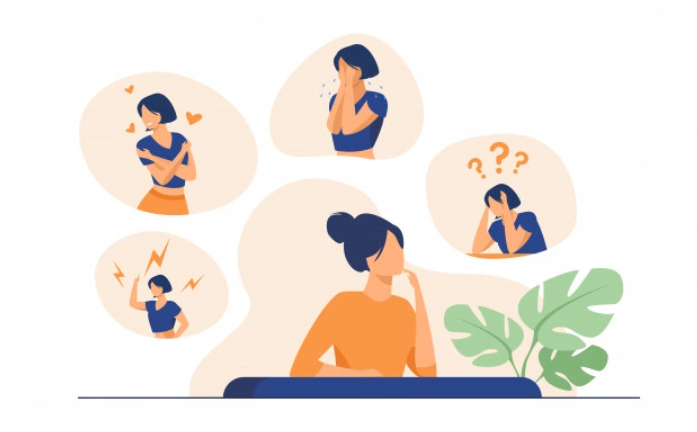(Disclaimer: This post heavily draws upon Dr. Kristin Neff’s work, which can be accessed via her website. Also, throughout the following post, I will hyperlink any/all information I found on Dr. Neff’s website, so the wonderful resources provided there can be accessed easily by you readers).
Hello there,
All the way back in October of last year, I wrote my monthly blog post about self-compassion. Near the end of this post, I stated that I was planning to work on Dr. Kristin Neff’s self-compassion exercises, and provide a follow-up blog post, detailing my experience, in November. Specifically, my November blog post was meant to dive into the topic of the “inner critic,” and why it is important to have compassion for our inner critics, as I know that mine tends to become more prominent (or, my self-awareness of my inner critic increases) during times when I am actively trying to take care of myself or better myself.
I was unable to write this blog post in November.
I was still unable to write this blog post one month later, in December.
Due to many factors, I found myself (begrudgingly) needing to take steps back from many things. I was simply running out of time in each and every one of my days, and my emotional bandwidth was getting lower and lower. So, remembering that I should treat myself with compassion (particularly during times when I am struggling), I allowed myself to take the backward steps that I desperately needed to take.
Of course, this made my inner critic pipe up.
“You are letting people down.”
“It is your fault that you are so exhausted.”
“You are a bad person for needing a break.”
Just as Dr. Neff details, as I began noticing how critical my inner critic’s voice was of my self-compassionate behaviour, I became incredibly judgmental of my inner critic.
“Why can’t you figure out how to be nicer to yourself already?”
“What is wrong with you? Why are you mad at yourself? You did nothing wrong.”
“You rationally know that it is perfectly okay to take steps back from all of your responsibilities for a brief time. Why must you continue to be so stupid, and get so unnecessarily mad at yourself for actually taking a break when you need one?”
When reading these two voices’ quotes back-to-back, we can see that they are actually doing the exact same thing; they just have different targets. The inner critic attacks the remaining aspects of myself, and those remaining aspects of myself attack the inner critic.
It is too easy for me to fall into this trap of critiquing my inner critic so endlessly. It feels so right in the moment, like I am justly defending myself against my inner critic’s cruelty. However, from afar, I can see just how misplaced these feelings are. When I judge my inner critic, I am still judging myself…I am still being cruel to myself…And, I am still acting as a barrier in the way of true self-compassion.
This recent example from my life highlights how necessary it is to be compassionate to our inner critics (in addition to all other aspects of ourselves). To do so, I personally think that it is very important to understand the motivation behind the critical voice.
As described by Dr. Neff, our inner critic actually cares about us deeply, and maintains the primary motivation of keeping us safe from harm. Unfortunately, our inner critics don’t know which avenues are the best to take in their quest to keep us safe and happy. Therefore, they rest on their laurels (i.e., saying super mean and hurtful things to us).
For instance, when my inner critic said, “It is your fault that you are so exhausted,” the underlying motivation behind those words were likely along the lines of: concerns for my mental health, that I am not able to engage in the activities that I like (e.g., blogging), and that I will be letting down the people around me who rely on me (which, innately, us humans do not like). So, when I respond to my inner critic with, “Why can’t you figure out how to be nicer to yourself already?” all that I am actually doing is keeping myself in the upsetting state of mind (i.e., stress, negative emotions, etc.) that originally surrounded my inner critic’s words. If I instead remember that my inner critic does have my best interest at heart, taking care to meet that critical voice with radical self-compassion, I would be able to move into what Dr. Neff calls our “safety system”. This safety system, initiated by care and affection (e.g., self-compassion) calms our sympathetic nervous system/”stress response” system, allowing us to find true emotional balance.
Despite the difficulty, I aim to show all parts of myself (especially my inner critic) compassion going forward. I encourage all who read this to strive for the same, because each and every one of us deserves to.
Screw the stigma <3
-Tristen
The views expressed in this blog are my own, and do not necessarily reflect the policies or views of the University of Victoria. I monitor posts and comments to ensure all content complies with the University of Victoria Guidelines on Blogging.
The homepage of Dr. Kristin Neff’s website:
Neff, K. (2021). With self-compassion, we give ourselves the same kindness and care we’d give to a good friend. Self-Compassion, Kristin Neff. https://self-compassion.org/

Hi Tristen,
I really enjoyed your post. You brought up an interesting point, in that by judging our inner critics, we are still being unkind to ourselves. I agree with your notion of learning to question where the critical voice is coming from. I believe that doing so will help us develop a greater sense of self-awareness and shift our perspectives, which in turn will help foster self-compassion.